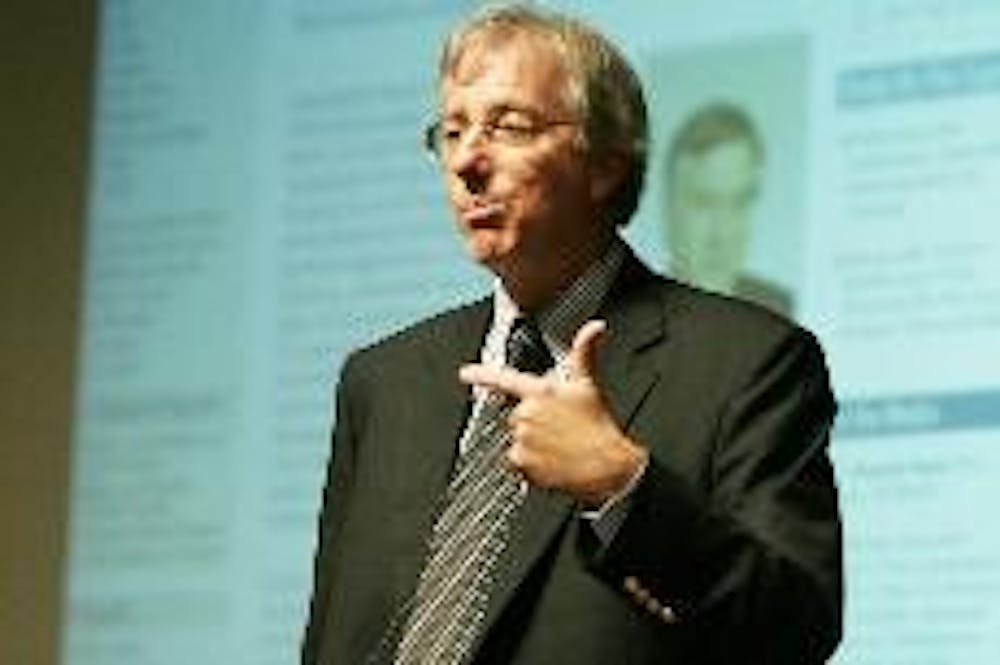
Former Special Envoy to the Middle East Dennis Ross speaks on the current political and military situation in the region. (Michael Pickering)
It was former President Bill Clinton who once said "no one has worked harder for peace than Ambassador Ross."
With these glowing words of introduction, Ambassador Dennis Ross took the stage of Hall Auditorium Thursday afternoon, speaking on U.S. foreign policy and the delicate political situation in the Middle East.
As a former special envoy to the Middle East, Ross is a distinguished diplomat and scholar, with more than two decades of experience in the Soviet Union and Middle East. Before retiring in 2001, he had worked for the Reagan, H.W. Bush and Clinton administrations.
Yet, while Ross is most known for his role in brokering some of the most important peace contracts of the 1990s, Thursday afternoon he spoke strictly on the current state of affairs in the Middle East - especially the politically volatile conflict between Hezbollah and Israel.
"There is a fundamental need to address the Middle East when you're talking about U.S. foreign policy," Ross said. "The focal point of foreign policy today is the Middle Eastern focal point. Everything is going to be seen through that lens."
And the focal point of the hour seems to be the conflict between Israel and Hezbollah, one that escalated during the past summer into a brutal struggle, capturing the world's attention.
But even with the current cease-fire, Ross stressed that violence could soon escalate again if something is not done to control the flow of arms into Lebanon from Syria.
"My fear that I have," Ross said, "is the resupply of Hezbollah."
Ross went on to explain that this would then demand negotiations with Syria - which Ross presented as a process of give and take.
"Is it possible to affect Syrian behavior?" Ross said. "If we stay on the path we're on, the answer is no. If you want to change their behavior, you're going to have to build your leverage." According to Ross, this would include cooperation with Europe in economic and political sanctions.
Enjoy what you're reading?
Signup for our newsletter
Ross, now a Ziegler Distinguished Fellow as well as a published author, was introduced by President David Hodge, who expressed the special importance of Ross's visit.
"Our nation has asked Ambassador Ross to shape some of the most difficult policy challenges of our time," Hodge said.
And with the Middle East still in a state of political and military tumult, Ross's insights come at a needed time.
Lisa Armstrong, a first-year attending the event, stressed the relevance of the topic, as it impacts everyone.
"I wanted to hear someone who knows what he's talking about and (hear) what he has to say," said Armstrong, who is considering a major in diplomacy and foreign affairs.
Under President Clinton, Ross was awarded the Presidential Medal for Distinguished Federal Civilian Service.
He also received the State Department's highest award from Secretaries of State James Baker and Madeleine Albright for his integral role in the 1994 Israel-Jordan treaty, the 1997 Hebron Accord, and other peace contracts.




